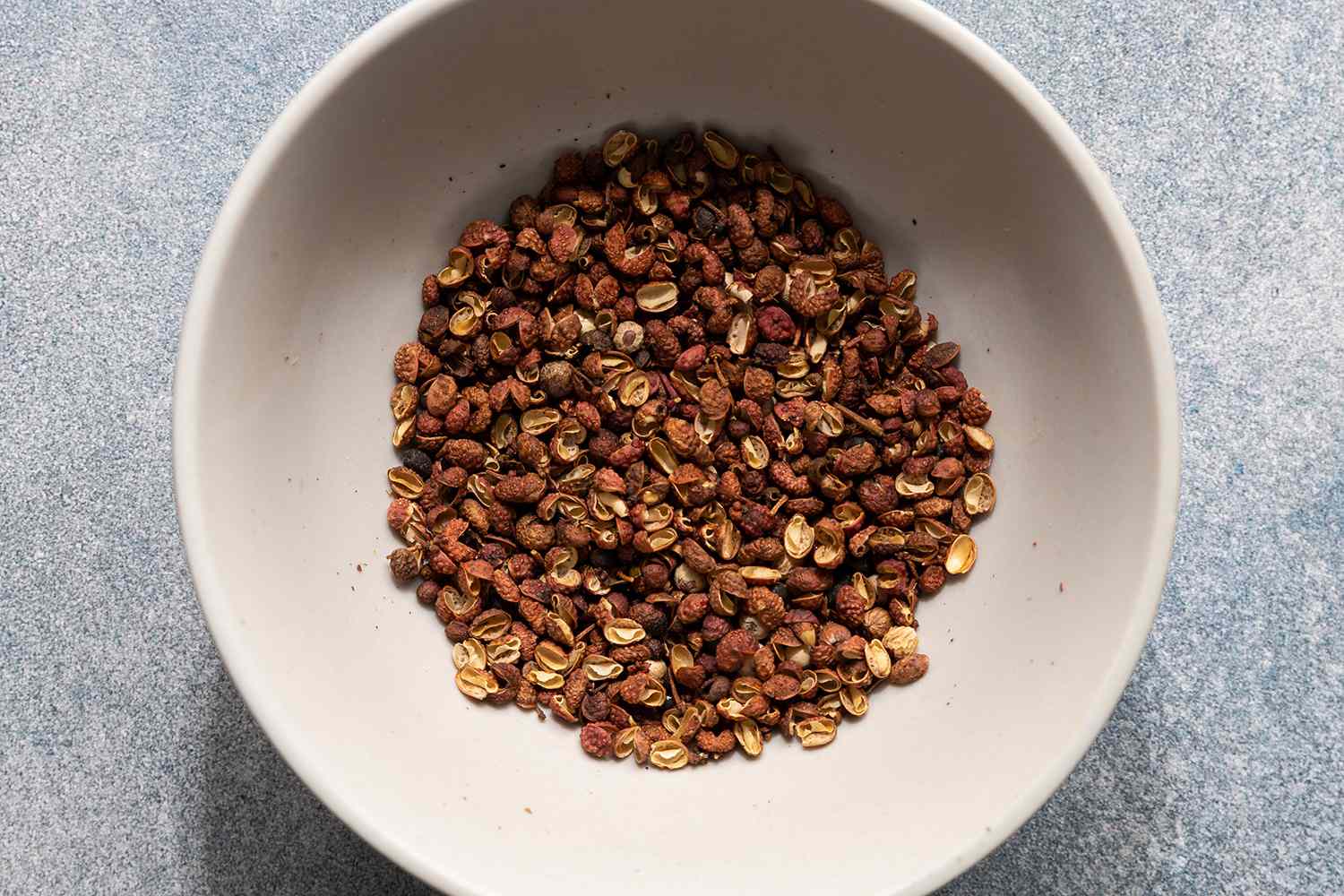
Sichuan pepper, also known as Sichuan peppercorn or Chinese prickly ash, is a famous spice that originates from the Sichuan province in China. Known for its unique and distinct flavor, Sichuan pepper provides a numbing and tingling sensation on the taste buds, making it a key ingredient in many Sichuan cuisine dishes.
In this article, we will explore 17 fascinating facts about Sichuan pepper, diving into its history, culinary uses, health benefits, and more. From its ancient origins to its popularity in international cuisine, Sichuan pepper has a rich cultural significance and has become a favorite among spice enthusiasts. So, let’s embark on a flavorful journey and uncover some intriguing information about this aromatic spice!
Key Takeaways:
- Sichuan pepper isn’t a true pepper, but a numbing spice with anti-inflammatory properties. It enhances flavors, aids digestion, and adds complexity to dishes beyond just spiciness.
- This versatile spice is essential in Sichuan cuisine and beyond, adding a unique numbing heat and vibrant red color to dishes. It’s also used in traditional Chinese medicine for its warming properties.
Sichuan Pepper is Not a True Pepper
Contrary to its name, Sichuan pepper is not a member of the pepper family. It is a dried husk of the prickly ash tree, which is native to the Sichuan province of China.
The Ancient Chinese Called it “Flower Pepper”
Sichuan pepper was originally known as “flower pepper” due to its unique aroma, which is often described as a combination of citrus and floral notes.
It Has a Tingling and Numbing Sensation
One of the defining characteristics of Sichuan pepper is its distinctive numbing sensation in the mouth. The compound responsible for this sensation is called hydroxy-alpha-sanshool.
Sichuan Pepper Stimulates the Taste Buds
The tingling and numbing sensation of Sichuan pepper actually stimulates the taste buds, enhancing the flavors of other ingredients in a dish.
Sichuan Pepper is Used in Traditional Chinese Medicine
In addition to its culinary uses, Sichuan pepper has been used in traditional Chinese medicine for its warming and pain-relieving properties.
It Adds a Complex Heat to Dishes
Sichuan pepper delivers a unique heat that is not just about spiciness but also about complexity. It adds layers of flavor that make dishes more interesting and satisfying.
Sichuan Pepper is Versatile
While commonly associated with Chinese cuisine, Sichuan pepper is also used in dishes from other Asian cuisines like Tibetan, Nepali, and Bhutanese.
It Has Anti-inflammatory Properties
Studies have shown that Sichuan pepper contains compounds with anti-inflammatory properties, which may have potential health benefits.
Sichuan Pepper Enhances Digestion
It is believed that the numbing properties of Sichuan pepper can help soothe digestive problems and improve overall digestion.
It Comes in Two Varieties
There are two main types of Sichuan pepper: red and green. The red variety is more commonly used and has a stronger aroma and flavor.
Sichuan Pepper is Essential in Mapo Tofu
Mapo Tofu, a popular Sichuan dish, relies heavily on the numbing heat of Sichuan pepper to create its signature flavor profile.
It Can Be Used in Marinades and Rubs
Sichuan pepper can be ground and used in marinades and rubs to infuse meats and vegetables with its unique flavor and heat.
Sichuan Pepper is Full of Essential Oils
Sichuan pepper contains essential oils that contribute to its distinctive aroma and taste. These oils are released when the pepper is heated or ground.
It is Used in Hot Pot and Mala Dishes
Sichuan pepper is a key ingredient in hot pot and mala dishes, famous for their numbing and spicy flavors.
Sichuan Pepper is a Key Component of Five Spice Powder
Sichuan pepper is one of the five spices used in Chinese Five Spice Powder, along with star anise, cloves, Chinese cinnamon, and fennel seeds.
It Adds a Vibrant Red Color to Dishes
When used in large quantities, Sichuan pepper can give dishes a vibrant red color, making them visually appealing.
Sichuan Pepper Should be Stored Properly
To retain its flavor and aroma, Sichuan pepper should be stored in an airtight container away from heat and light.
There you have it – 17 fascinating facts about Sichuan pepper! From its unique numbing sensation to its versatile uses in various cuisines, Sichuan pepper brings a fiery and flavorful experience to the world of spices. So next time you crave a spicy kick, reach for the Sichuan pepper and embark on a gastronomic adventure!
Conclusion
In conclusion, Sichuan pepper is a fascinating spice that has captured the attention of food enthusiasts around the world. Not only does it add a unique and exhilarating flavor to dishes, but it also has a long history and a variety of surprising facts associated with it. From its origin in China’s Sichuan province to its numbing and tingling sensations, Sichuan pepper has truly become a beloved ingredient in many cuisines.Whether you are a fan of spicy food or just curious about exploring new flavors, Sichuan pepper is definitely worth a try. Its complex flavor profile and distinctive characteristics make it a versatile spice that can be used in a wide range of dishes. So, why not add a dash of excitement to your next meal with some Sichuan pepper?
FAQs
1. What is Sichuan pepper?
Sichuan pepper is a spice native to the Sichuan province of China. It is derived from the dried berries of the prickly ash tree and is known for its unique numbing and tingling sensation.
2. How is Sichuan pepper used in cooking?
Sichuan pepper is commonly used in Chinese cuisine, particularly in Sichuan dishes. It can be ground into powder or used whole and added to stir-fries, soups, marinades, and sauces to impart a spicy and citrusy flavor.
3. Is Sichuan pepper really numbing?
Yes, Sichuan pepper contains a compound called hydroxy-alpha-sanshool, which gives it its characteristic numbing sensation. This unique sensation is often described as a tingling or buzzing feeling on the tongue.
4. Can Sichuan pepper be used as a substitute for regular pepper?
No, Sichuan pepper has a distinct flavor profile and cannot be used as a direct substitute for regular pepper. However, it can be used alongside regular pepper to add an extra layer of flavor and complexity to dishes.
5. Are there any health benefits associated with Sichuan pepper?
Yes, Sichuan pepper is believed to have several health benefits. It is thought to aid digestion, reduce inflammation, and even have antimicrobial properties. However, more research is needed to fully understand its potential health benefits.
6. Where can I buy Sichuan pepper?
Sichuan pepper can be found in most Asian grocery stores and online spice retailers. Look for whole or ground Sichuan pepper to add a burst of flavor to your culinary creations.
Was this page helpful?
Our commitment to delivering trustworthy and engaging content is at the heart of what we do. Each fact on our site is contributed by real users like you, bringing a wealth of diverse insights and information. To ensure the highest standards of accuracy and reliability, our dedicated editors meticulously review each submission. This process guarantees that the facts we share are not only fascinating but also credible. Trust in our commitment to quality and authenticity as you explore and learn with us.


